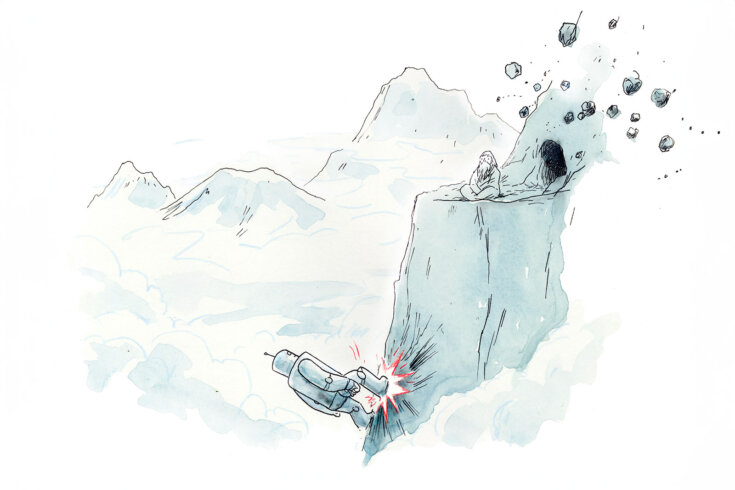Several months ago, a new search engine called Perplexity received widespread acclaim. For one online reviewer, it was “the absolute pinnacle of artificial intelligence technology.” Journalist Kevin Roose, on his podcast Hard Fork, described a dinner with AI executives who hailed it as “the greatest thing since sliced bread.” This tool is perhaps the single most terrifying development I have seen in my twenty-two years as a magazine editor.
Perplexity is marketed as an “answer engine.” Prompted by a question, it doesn’t throw out a list of links—the expected behaviour from a search engine—but generates a concise paragraph, in real time, right in front of you. It works a bit like ChatGPT, but it is better at locating the most reliable facts about a subject and regurgitating what it learns into a vivid, human-sounding summary. Perplexity can also carry a conversation with you by recommending more detailed follow-up queries to zero in on the precise information being looked for. That, in large part, is what’s scary: there’s no need to go elsewhere. To the extent that a user is satisfied with Perplexity’s responses, they might never click through to a publication’s site—and that search traffic is media’s lifeblood.
Say you caught a radio interview with writer Conrad Sweatman about his investigation for us into Nazi sympathizer and former Winnipeg Art Gallery director Ferdinand Eckhardt. Intrigued, you might look up some keywords—WAG, Nazi, art—then skim through the links, and, ideally, land on the article we published on November 9, 2023. But if you use Perplexity, it will read the full text and deliver a convincing summary of the controversy around Eckhardt. You might judge the summary so convincing that you won’t be motivated to seek out the story on our website. To be fair, Perplexity provides a menu of citations for its claims. But how many users will conduct additional research to verify an answer’s accuracy? By keeping readers off our pages (away from the ads they might see) and depriving us of any donations or subscriptions that accrue from their visits, AI-generated search will make it harder for us to pay the bills.
Google is testing its own answer engine, dubbed Search Generative Experience, or SGE. Microsoft has already rolled out its version of the technology through Bing. Both companies anticipate a day when clicking through to source material will feel as quaint as using a card catalogue in a library. Why do this? Money, most likely. This way, search platforms keep more of the web traffic—and ad revenue—for themselves. Google alone owns around 92 percent of the global search market. When it finishes integrating SGE into its core functions—well, do I need to spell it out?
I’ll try: media outlets die off as traffic dries up, talented writers cannot find work, and we, as readers, lose diverse voices, in-depth reporting, and the kind of surprising turns of phrase only humans can come up with. This is a killing blow not just to publishers but to the search industry itself. By shrinking the amount of journalism in the world, AI-powered search will effectively destroy the goose that laid its golden egg. The world-class reporting The Walrus publishes can’t be pieced together, on the fly, from random data sets. Investigations can take months. We spend hundreds of thousands of dollars a year on writers, then on editing and fact-checking their findings. Perplexity gets it all for free. When newsrooms die, what will be left to search? What will answer engines do when the people who spent time and money figuring out all those answers are gone?




